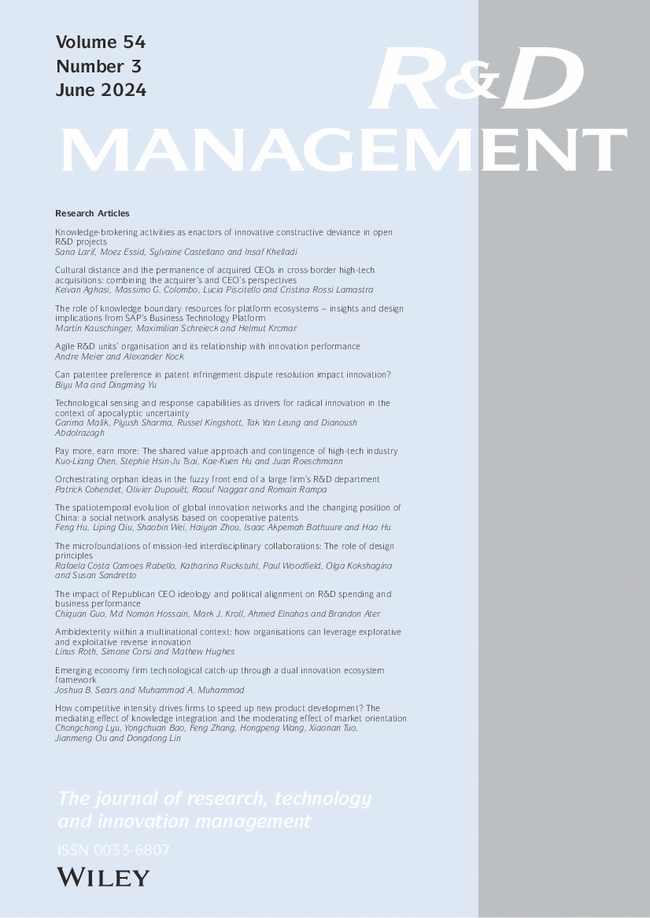The dynamics of new sharing economy ventures strategies and ecosystem legitimacy: the case of Airbnb
IF 5.7
2区 管理学
Q1 BUSINESS
引用次数: 0
Abstract
While new ventures strive to align with prevailing demand and expectations to gain and maintain legitimacy and successfully overcome the liability of newness, sharing economy ventures face additional legitimacy pressure before and after they achieve scale. Based on an inductive single case study approach, using the example of Airbnb Inc., this study investigates how digital platform‐based ventures navigate the tension between remaining legitimate yet distinctive throughout the organizational lifecycle. Adopting a processual perspective, our findings reveal the strategies used by Airbnb to navigate the temporal dynamics of entering established industries. With a particular focus on the digital platform's efforts to achieve and maintain cognitive and sociopolitical legitimacy, this study aims to enhance knowledge regarding the formation and adjustment of organizational strategy and identity over time. Our proposed model of digital platform development reveals three distinct stages of strategy shifts, including demonstrating a sense of novelty, establishing dominant positioning in a broader market, and competitive differentiation to create value for customers. Furthermore, we show the primary triggers for change and the organizational identity change process in different stages of the organizational lifecycle.新共享经济风险投资战略和生态系统合法性的动态:以Airbnb为例
虽然新企业努力与主流需求和期望保持一致,以获得和保持合法性,并成功克服新颖性的责任,但共享经济企业在达到规模之前和之后都面临额外的合法性压力。基于归纳的单一案例研究方法,本研究以Airbnb Inc.为例,研究了基于数字平台的企业如何在整个组织生命周期中保持合法与独特之间的紧张关系。采用过程视角,我们的研究结果揭示了Airbnb在进入成熟行业的时间动态中所使用的策略。本研究特别关注数字平台为实现和维持认知和社会政治合法性所做的努力,旨在增强有关组织战略和身份随时间的形成和调整的知识。我们提出的数字平台发展模型揭示了战略转变的三个不同阶段,包括展示新颖性,在更广阔的市场中建立优势定位,以及竞争差异化以为客户创造价值。此外,我们还揭示了组织生命周期不同阶段的组织认同变化的主要触发因素和组织认同变化过程。
本文章由计算机程序翻译,如有差异,请以英文原文为准。
求助全文
约1分钟内获得全文
求助全文
来源期刊

R&D Management
Multiple-
CiteScore
11.30
自引率
9.50%
发文量
0
期刊介绍:
R&D Management journal publishes articles which address the interests of both practising managers and academic researchers in research and development and innovation management. Covering the full range of topics in research, development, design and innovation, and related strategic and human resource issues - from exploratory science to commercial exploitation - articles also examine social, economic and environmental implications.
 求助内容:
求助内容: 应助结果提醒方式:
应助结果提醒方式:


